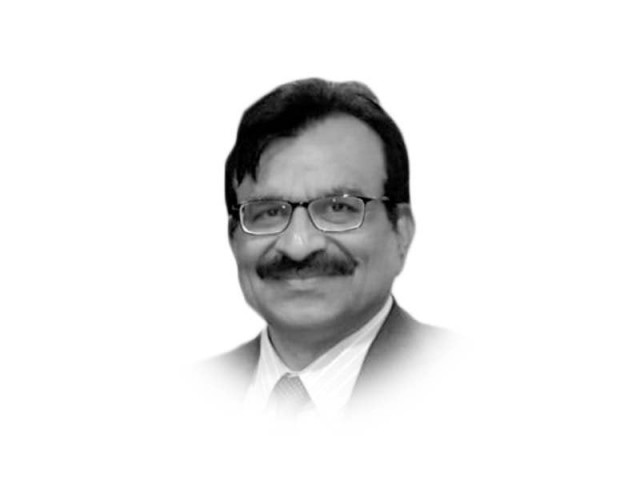Searching for Mansoor!
As a society we all know what the real problems and challenges are but we don’t dare to speak
The writer is an Adjunct Professor of Epidemiology at the University of Nebraska, USA and has worked for the US Center for Disease Control and Prevention. He can be reached at jasghar@gmail.com
A long time ago, I wrote an editorial in the magazine of my medical college. I used some verses from Ibne Insha’s poetry which roughly translate as, “Truth is good but if someone else dies for it then it is much better. You are no Mansoor who walks towards the gallows so be quiet.”
When I returned and started working with different senior level government officials across Pakistan, I quickly realised that there is no dearth of highly educated, competent and honest officers. But then why are the systems in Pakistan struggling and collapsing? Quickly, I also realised that no matter how competent and honest a technical or managerial person is he never stood with his professional opinion if the superiors had other ideas. In such an atmosphere, young aspirants continuously look into the eyes of their bosses to recognise the first indication of any displeasure and modify their advice accordingly. In this culture of enforced agreements, problems are brushed under the carpet and upcoming challenges are ignored. Putting our head in the sand does not mean that the problems will go away, and that is how the best-intentioned projects fail to produce the intended results. So in my understanding, Pakistan’s real problem is a lack of “brave officers”.
That does not mean Pakistan does not have competent people. We have many but unfortunately, most do not want any disagreement, especially with their bosses. While I was still in the last part of my studies at the University of Washington, I was offered a job in one of the Ministry of Health departments. As it was an international collaborative position, I was offered an attractive package but I respectfully declined. My reasons for regret were that I could not tolerate corruption and am not afraid to call a spade a spade, and hence foresaw continuous conflict. Upon hearing this, my professor told me that even the most corrupt ministries need some honest people to run them, without whom the whole system would collapse.
Now, we can see our whole society acting in conformity as the price of disagreements is becoming higher. From newspapers to television news channels, we see compliance to extreme levels. Truth has a high cost because if it was an easy thing to do then everyone would have been telling the truth. However, only few dare to say it. I have tried to train government officers to speak the truth and they always complain that their superiors do not want to hear it. Speaking the truth means not being invited to key meetings or being completely sidelined or transferred from one’s position. But organisations and societies need to ensure that there are enough people who could tell them the truth. If there is a ditch in the road someone should be allowed to tell us about it before we all fall into it. Even if we cannot tolerate everyone speaking the truth, we at least need a critical mass of people to tell us if our vehicle is going to collide with a wall.
We could hide the real number of our diseases or outbreaks but we will just end up prolonging the outbreak and the number of sick people. Similarly, organisations can fake the numbers but the ground realities speak of the actual situation. Truth always prevails but if we keep hiding it, then as a society we need to pay a higher price.
As a society we all know what the real problems and challenges are but we don’t dare to speak. All of us know that the king is not wearing any clothes but we are waiting for someone else to become Mansoor. Or for some child to speak.
Published in The Express Tribune, January 5th, 2020.
Like Opinion & Editorial on Facebook, follow @ETOpEd on Twitter to receive all updates on all our daily pieces.

COMMENTS (1)
Comments are moderated and generally will be posted if they are on-topic and not abusive.
For more information, please see our Comments FAQ